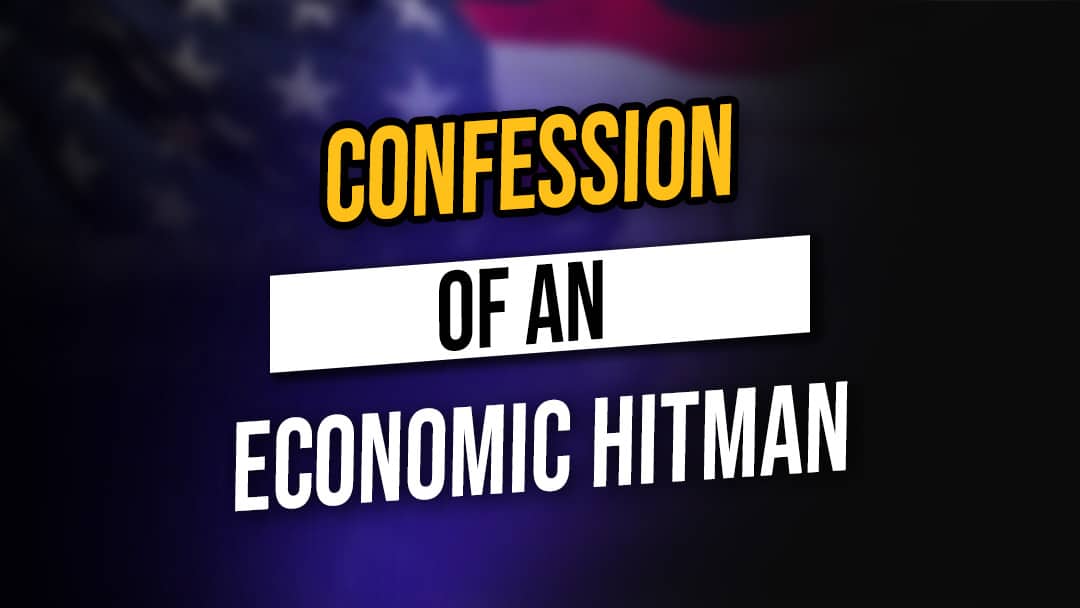
14 Mar The New Confessions of an Economic Hitman by John Perkins
Mark came through with another riveting book. This story is a globe trotting memoir of John Perkins, a former “economist” with a US based consulting firm. I recently read Robert F. Kennedy’s memoir on the Cuban Missile Crisis titled “Thirteen Days.” In the book, you learn that once nuclear weapons came to be, countries were actually less likely to wage war against one another. War was no longer a risk of soldiers losing their lives, but everyone in the world. It begs a deeper question – how does the US achieve the goal of war without weapons? How has the country continued it’s imperialist agenda while keeping a low(ish) profile and shedding as little of our own citizens blood as possible? That was a role John Perkins played as an Economic Hitman and the story behind his writing.
The US has military bases throughout the world, yet how many military bases do other countries have here?
Our country has a unique model for gaining access around the globe for both strategic purposes and the acquisition of resources. Consulting firms cheat countries out of billions of dollars and promote US economic interests through economic hitmen.
An EHM (Economic Hitman) works through a consulting company in conjunction with the World Bank or the International Monetary Fund and construction and engineering firms. The book goes into great detail to describe how the information I share below played out in multiple countries. My summary is only a brief overview and won’t ruin the story for anyone wanting to dig into it. The role of an EHM is to meet with the leaders of a second or third world country and promote the powers of growth through false economics, distorted financial analyses and inflated projections. They come in and speak to what will happen if the consulting company, working with US engineering and construction firms, builds power plants, electrical grids, industrial parks, highways, telecommunications systems and airports. The problem is, the growth forecasts are unrealistic and countries become burdened with debt they can never repay. The investment does not pan out. Meanwhile, the engineering and construction companies become extremely wealthy. It is a form of conflict free modern imperialism that’s been applied across the globe throughout the last eighty years. How it plays out in each respective country, how it affects the leaders and citizens of that country, and the end result of these actions is the basis for many gut wrenching chapters.
What happens when countries fall behind on payments to the World Bank? Upon becoming ensnared in debt we are assured loyalty and resources in return for forgiven loans. We subsequently satisfy our political, economic and military needs.
I never fully understood why the Middle East despises America to the level they do. This walks the reader through a clear timeline of the havoc we have wrought overseas. Modernizing cities that weren’t seeking growth, locking ourselves into oil supplies, and controlling world leaders resulting in them acting to our whims. The actions of EHM’s are driven by greed rather than a desire to help make life better for the natives of a country. The growth being sold helps no one but the country funding the unpayable loans and the firms engaging in lucrative contracts.
Perkins writes about a co-worker who was working on an project and refused to provide exaggerated electrical load forecasts. The employee was exceptionally knowledgeable and resolute in his morals – he was also promptly terminated. If you read the introduction of the author before beginning the book you’ll see he’s turned a page in his life and career. Outside of owning what he was involved with and exposing the industry he operated in, he now works with several organizations he founded to help protect the way of life for many indigenous people while also helping them find ways to create sustainable income sources.
“I often found myself questioning what I was doing, sometimes feeling guilty about it, yet I always discovered a way to rationalize staying in the system.” He took responsibility for the role he played in widening the gap between the rich and the poor and took action to correct his course.
The idea of making countries servitude to debt plays out on the individual level in America. Home loans, college loans, car loans and high-interest credit card debt. Medical bills, insurance payments and financing anything people want, don’t need and can’t afford. It is discouraging to see it can happen to everyone from the citizens on up to the leaders of and the country itself. One take away from Perkins is that when you see something that’s not okay, it’s never to late to do in your heart what you know is right. He can’t change the past but he’s now out there working hard to help both indigenous people and the countries they live in.

